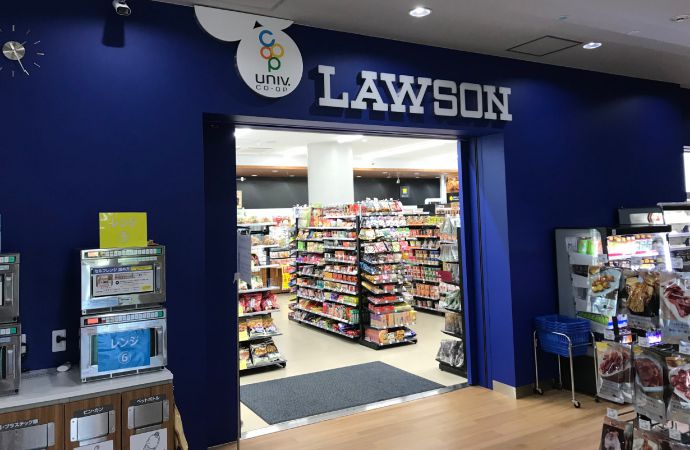The Deutsche Umwelthilfe (DUH) has conducted its first survey on the use of refrigerants in German supermarkets. The results indicate increasing shares of natural refrigerants in stores and cold storage facilities. Nevertheless, the DUH is calling for a ban of HFC gases.

In its first survey on the use of refrigerants in German supermarkets, the DUH asked 33 leading German retailers to indicate the refrigerants used in their stores and cold storage facilities. Measures taken by retailers to implement climate friendly technologies and increase efficiency were also part of the survey. In total, 13 retailers took part, of which 7 completed the entire survey: Aldi Nord, Aldi Süd, Kaisers Tengelmann, Kaufland, Lekkerland, Lidl and Netto.
Hydrocarbons pull ahead of HFCs at German discount retailers
Almost all retailers participating in the DUH survey attach great importance to natural refrigerants, with discount retailers relying more and more on natural refrigerants for low temperature (LT) refrigeration. The share of natural refrigerants in LT systems is already higher than for HFC’s at German discount retailers.
- Lidl: Lidl, a leading German discount retailer, has 3,300 stores and more than 30 distribution centres in operation today. The natural refrigerant propane already has a share of 60-70% in MT and LT chest freezers and 3-5% in MT display cabinets. Two third of Lidl’s chest freezers already use natural refrigerants today. In addition, 30-40% of the distribution centres use propane and CO2 for MT and LT.
- Aldi Süd: In southern Germany, Aldi operates 1,816 stores and 31 distribution centres. 97,6% of Aldi Süd’s distribution centres run on ammonia. Since 2010, all new stores use CO2 compound refrigeration plants for MT (medium temperature) and LT. Already 10,1% of their display cabinets (180 stores) use these CO2 refrigeration systems. In addition, 79% of their chest freezers use propane for LT (low temperature). In total, four out of five chest freezers (about 32,000) use natural refrigerants. The remaining 21% that currently use HFC’s will be replaced by 2017.
- Aldi Nord: Aldi Nord operates 2,428 stores and 35 distribution centres. In MT refrigeration, 49% of the chest freezers use propane and 1% of the display cabinets CO2. For LT 55% of the chest freezers use propane. A decision on whether to use of natural refrigerants in compound systems is still pending.
- Netto: In its 2 distribution centres, Netto uses 50% CO2 for LT. In the 345 Netto stores, no natural refrigerants are used to date.
Natural refrigerants are gaining ground in German supermarkets
The results of the DUH survey indicate improvements in phasing out HFC’s in German supermarkets. The number of retailers already using natural refrigerant is growing according to the DUH results:
- Lekkerland: Lekkerland is a wholesaler supplying beverages and food products to 61,400 kiosk, petrol stations, shops, beverage stores, department stores, supermarkets, bakeries and convenience stores. 71% of the company’s chest freezers use isobutane for MT. For LT refrigeration, Lekkerland uses isobutane in 66% of the chest refrigerators and propane in another 18%. 87% of its 15 distribution centres use ammonia for MT and 92% CO2 for LT refrigeration.
- Kaufland: Kaufland’s 6 distribution centres predominantly use ammonia. The number of natural refrigerants for LT is increasing, with CO2 the standard refrigerant in all new stores. However, the share of natural refrigerants is still very low in the 630 Kaufland stores as CO2 is only used in 1% of the MT chests and cabinets. CO2 is used in 7% of the chests and cabinets for LT.
- Kaisers Tengelmann:Kaiser Tengelmann uses ammonia as the predominant refrigerant in its four distribution centres. In MT applications, none of Teneglmann’s 513 stores as yet uses natural refrigerants. In LT cabinets and chest cabinets, the refrigerant CO2 has a share of 10%.
- Tegut, Metro Group, Rewe Group and Edeka: Since 2012, German retailer tegut is using CO2 compound refrigeration systems in all new and completely retrofitted stores. So far the company has 20 stores running on CO2. Metro Group uses natural refrigerants in all new stores and is already operating all of its 14 distribution centres with ammonia. Rewe Group has already 15,000 cabinets using natural refrigerants. At Edeka, almost all new or renovated stores use natural refrigerants.
DUH calls for F-gas ban
The number of German retailers successfully phasing out HFC’s is promising. Nevertheless, the majority of display cabinets and chest freezers in German supermarkets still use climate depleting HFC’s. The annual leakage of R404A, causes the same damage to the environment as 1,8 million passenger cars. DUH concludes that the phase out of HFC’s is feasible and necessary, but depends on the right decisions are made. Therefore, DUH calls for:
- Clear signals at the EU level for change: a ban of refrigerants with a GWP > 2,500 as of 2017 and a ban of new plants using these refrigerants as of 2020.
- Clear rules regarding use of recycled refrigerants in existing plants: existing plants should only be allowed to be filled with new substances until 2017. After 2017, only recycled HFC’s can be used;
MORE INFORMATION
Related stories



